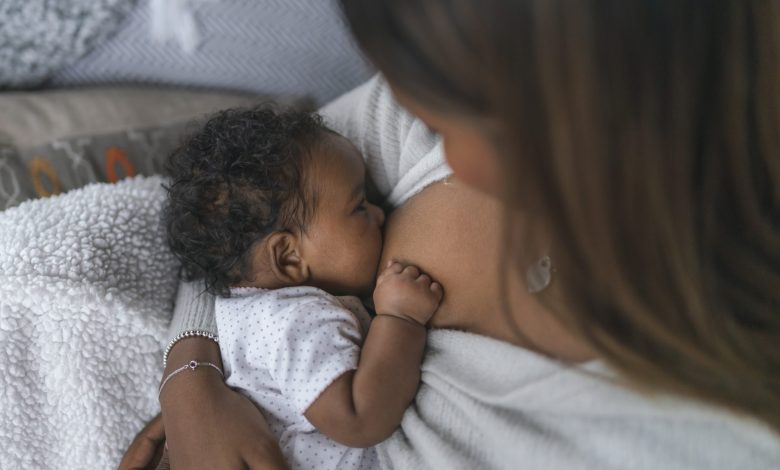Zanzibar’s breastfeeding push aims to combat malnutrition and save lives

ZANZIBAR: AS the World celebrates ‘Breastfeeding Week’, Zanzibar is using the occasion to sound the alarm over a worrying rise in maternal malnutrition and undernourished children, conditions that continue to threaten public health and national development.
At the heart of the message is a call for collective action—from families (including male parents) and religious leaders to employers and media outlets, to support breastfeeding and improve nutrition outcomes for mothers and children alike.
The World Health Organisation (WHO) emphasises that infants should be exclusively breastfed for the first six months of life. This means no other foods or liquids, including water, should be given during this period.
After six months, the WHO recommends introducing nutritionally adequate and safe complementary foods while continuing breastfeeding up to two years of age or beyond.
Speaking during the official launch of the weeklong campaign on August 1 at the Ministry of Health’s headquarters in Mnazi Mmoja, Stone Town, the Deputy Minister for Health Hassan Khamis Hafidh did not mince words.
“Many women come to give birth without enough blood in their bodies, Anaemia and also many newborns face preventable complications due to poor maternal nutrition,” he said.
“We must address malnutrition to eliminate maternal and infant deaths.”
Mr Hafidh linked the crisis directly to diet, urging families to embrace healthy eating habits.
ALSO READ: Promote breastfeeding education, leaders told
He pointed out that good nutrition is not necessarily expensive, citing sardines, green vegetables and fruits as accessible, affordable options rich in iron. “But unfortunately, many still choose junk food like fries and sugary snacks,” he added.
Crucially, he called on mothers to commit to exclusive breastfeeding for at least the first six months, a key recommendation from the World Health Organization.
“Proper breastfeeding builds the foundation for a child’s growth, school performance, and future success,” he noted.
This year’s global theme, “Prioritize Breastfeeding: Create Sustainable Support Systems”, reinforces the idea that breastfeeding is not the mother’s job alone.
Hafidh echoed this sentiment, urging for shared responsibility in promoting breastfeeding.
“We are exploring ways to allow male government workers time off to assist their partners after childbirth,” he said.
“Fathers must also be involved in ensuring a healthy diet and a stress-free environment for mothers.” He highlighted specific areas with alarming nutrition indicators, such as Micheweni in Pemba and northern districts of Unguja and called on NGOs, religious institutions and the media to increase public awareness and dismantle harmful beliefs or social taboos that hinder exclusive breastfeeding.
In Zanzibar, statistics remain a concern. Only 56 per cent of newborns are breastfed within the first hour after birth, and just 41 per cent are exclusively breastfed for the first six months, well below national and international targets. The government aims to increase the exclusive breastfeeding rate to 70 per cent by 2029.
To reach that goal, Hafidh emphasized the importance of pre- and postnatal care, including nutritional services that support pregnant women in building sufficient reserves ahead of delivery. “Breastfeeding success starts during pregnancy,” he said.
In Pemba, religious leaders and local nutrition committees are being mobilised as powerful allies in the campaign against malnutrition.
Sheikh Said Ahmed Mohamed, coordinator from the Mufti’s Office in Pemba, addressed local faith leaders and nutrition stakeholders at a meeting in Chake Chake.
He urged them to use their pulpits and platforms to spread knowledge about breastfeeding. “This is not just a medical issue, it is also religious,” he said.
“Muslims Holy book-Quran, encourages mothers to breastfeed their children for two full years. It’s our duty to communicate this message.”
According to officials, faith-based outreach is a strategic move to reach deeper into communities and confront long-held misconceptions about breastfeeding.
Religious leaders are trusted voices who can shift attitudes and practices in ways that government campaigns alone cannot.
Mr Shaib Itbar, from the Health Education Unit in Pemba, confirmed that the Ministry has formed local nutrition committees involving religious figures to reach households more effectively.
“We see them as key allies in the mission to reduce child malnutrition and strengthen our national workforce,” he said.
Mr Said Abdi Said, Acting Coordinator for the Nutrition Unit in Pemba, warned that poor breastfeeding habits often lead to longterm health problems, from stunting and poor immunity to respiratory infections.
ALSO READ: UHTC to open special breastfeeding childcare centres in Tanga
“Breastfeeding helps build a child’s defences from day one,” he said. Similarly, Ms Harusi Massoud Ali, Nutrition Coordinator in Chake Chake District, emphasized the critical importance of initiating breastfeeding within the first hour of birth.
“The first milk contains vital nutrients that a newborn needs to survive and grow,” she said.
She also called on men to ensure that mothers are well-fed, rested and emotionally supported.
“A woman cannot breastfeed effectively if she is stressed or undernourished. Men must help create enabling environments at home.” Dr Kamilya Ali Omar from the Ministry of Health reinforced the broader implications.
“Breastfeeding protects against diarrhea, malnutrition and respiratory diseases, but it also improves cognitive development, reduces maternal cancer risks, and lowers child mortality,” she said.
“Ultimately, breastfeeding is not just a health intervention. It is a national development strategy. Healthy children learn better, grow stronger and contribute more meaningfully to Zanzibar’s future.”
The World Breastfeeding Week is celebrated annually from August 1 to 7.
From the government to grassroots communities, the message is clear: breastfeeding is more than a mother’s responsibility. It is a shared duty and a national investment in the next generation.





